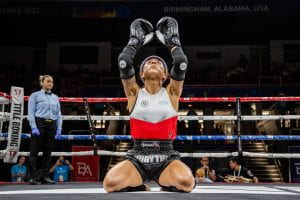
MAJOR: Anthropology
PROGRAM: FLP – Nevis Archaeology Field School, Nevis & St. Kitts
EMAIL: dustin.wagner@sjsu.edu
BIO: I am a student in the SJSU online Applied Anthropology program. Attending a field school is a requirement for becoming a working archaeologist. I was fortunate to find that experience offered through Study Abroad under the direction of Dr. Marco Meniketti. Dr. Meniketti is an expert in his field, and the one-on-one teaching he provides is top-notch. It was a no-brainer to choose the Faculty-Led program. Being in Nevis and St. Kitts allowed the team to practice all aspects of anthropology, from interaction with local stakeholders to helping with cultural resource management of degrading features. The locals of Nevis were happy to oblige us to participate in all aspects of island life due to the respect Dr. Meniketti has cultivated over 25 field seasons. It was a lifelong dream to practice archaeology in a foreign country, and this program fulfilled my dream while opening opportunities to become a working archaeologist.
LEADER, VOLUNTEER, OR JOB EXPERIENCES: Telecare Corporation:
Collection and transportation of medical hazardous waste, sharps and pharmacological waste from government, non-profit and private clinics across four counties to disposal sites. Collection and transportation of medical hazardous waste, sharps and pharmacological waste from government, non-profit and private clinics across four counties to disposal sites.
R&D Transportation Services, Inc:
Empowered people with developmental disabilities to use the public transportation. Provided job coaching by shadowing clients at their place of employment and at day programs, Collaborated with teachers at the ARC facilities for best training practices and insights. Empowered people with developmental disabilities to use the public transportation. Provided job coaching by shadowing clients at their place of employment and at day programs, Collaborated with teachers at the ARC facilities for best training practices and insights.
Secorp Industries:
Off-Shore oil platform Hermosa. I am the sole medical provider and Helicopter dispatcher at sea. I am responsible for all egress and survival gear, including closed air supply and lifeboat maintenance. Off-Shore oil platform Hermosa. I am the sole medical provider and Helicopter dispatcher at sea. I am responsible for all egress and survival gear, including closed air supply and lifeboat maintenance.
GOALS: My personal goal was to test myself physically, mentally and emotionally as to if Archaeology is the right fit as a career. The Nevis field school pushed me in a positive direction and has motivated me to go further in my education.
ACADEMICS: Our days were packed with lessons and real-world experiences specific to archaeology and anthropology. I woke up every day ready to work and learn while bringing a positive attitude to every new experience. Field notes were a must and were turned in to the director for the ongoing research in the area. I was able to work side by side with more experienced graduate students and received their backing to become a graduate student as well. After this experience, I am more motivated to apply to graduate schools, including SJSU.

Ready to work! Carrying tools to the Bath house dig site on Nevis.
COMMUNITY ENGAGEMENT: We rode local transportation, stayed in a Nevisian local’s home, and ate lunches at local eateries. During downtime, we relaxed in areas where the locals relaxed. We saw that every place in the world has its unique culture and aspirations. The main bus station had the same people one would find in the U.S. or Japan. Most were traveling, with some trying to separate you from your money. This left an impression on me as far as pondering the same economic divides that happen in the U.S. is apparent in a nation that is celebrating 50 years of statehood.
CAREER: We were taught all aspects of practicing archaeology by modern standards. We performed site surveys and artifact collection. We dug into our assigned units and were responsible for conducting a scientific inquiry into our findings. We processed artifacts and wrote field report notes daily. At the end of our work we properly repatriated the artifacts of lesser interest to the Nevis Legacy Heritage Association.
PERSONAL GROWTH: As a combat veteran with disabilities, I always worry about my capabilities as a professional. Will I work well with others? Can I physically perform the task, or will my medicines interfere with my abilities? Attending the field school and pushing myself out of my comfort zone allowed me to attain a lifelong dream. It has shown me that I have a place in the career field and can still accomplish tasks that help our fellow human beings.
IDENTITIES:I can be productive and attain goals.
By completing my education, I have not only started to attain my dreams but am also fulfilling the dreams of my grandparents and parents.
Veteran Status as It has shown me that I can overcome and work through the challenges of being a veteran.
FUTURE: This program has given me real-world experiences and a professional network. Nevis is a location I would like to continue working at. I was able to practice mobile scanning and plan to record more sites on the island nation in the future for a graduate school project.
TIPS: I recommend researching everything there is to know about the location and program directors’ research. This will make the experiences feel better as an informed student and less of a culture shock. It will also give you personal goals for what types of experiences you want to participate in.



